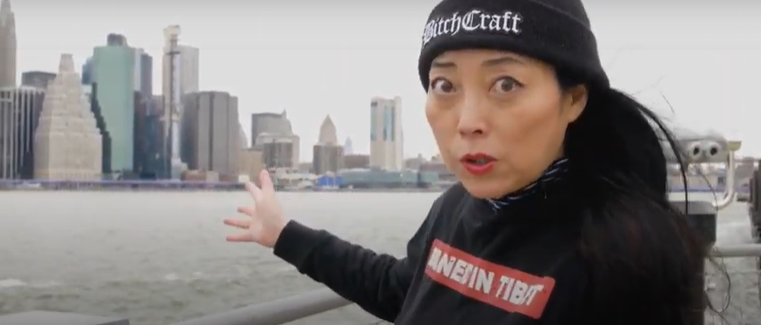New ethical Documentary Festival launched to promote diversity in the industry
A former student from the University of Essex has set-up a new Documentary Festival in Colchester to showcase the work of local filmmakers and productions created by directors from all over the world.
Elena Dirstaru was inspired to create Essex DocFest to help emerging documentaries establish their careers because they struggle to get noticed when they first start producing films. The profits made at the festival will also be invested in the future productions of the filmmakers.
“I’ve been making documentaries myself since 2012, which have been shown at film festivals over the world. However, the festival organisers often charged the audience about £20 to watch the films but didn’t pay the Directors for their work.
“I was even expected to buy tickets to watch my own films at some of the festivals. It just didn’t seem right that all the profits went to the organisers and not the filmmakers. So, I decided to create my own ethical festival to change things and direct more support towards the content creators.”
Dirstaru graduated in March 2020 after studying Film and Creative Writing as a Degree at the University of Essex and going on to complete an MA and PHD in Film Studies. During that time, she was proud to produce a documentary called But They Can’t Break Stones for her MA about the struggles faced by women in Nepal due to the lack of human rights.
Essex DocFest featured 100 films between October 28th and November 1st, which showcased online this year due to the Covid-19 crisis. However, she plans to bring the festival back next year to live audiences across many venues in Colchester.
“As a result of the festival being online, we will spend less money on venues this year, so I will be able to create an even bigger bursary for the filmmakers to fund their upcoming films. In the future, I hope to also pay each filmmaker for submitting their work to the festival. This seems like the right thing to do.
“My main aim ultimately is to change the way the festival industry fundamentally works. I know it’s a big ambition but it’s necessary. The festival set-up has been the same for decades, which means that small independent documentary filmmakers miss out on being paid for their films and supported with developing sustainable careers. The system has to change, with the filmmakers being prioritised more.”
”We will also provide feedback to filmmakers about their work, to help them learn and improve in the future, as well as offering awards from a judging panel of established filmmakers.”
The festival featured a broad range of diverse categories, including independent films from established and emerging filmmakers about life during lockdown. The subjects also focussed on women talking about the struggles of other women; disabled people explaining the challenges they face in society; European filmmakers analysing current and future European issues; Human Rights campaigners demanding more compassion in the world; and environmentalists talking about how we can protect the world in the future.
“The Disability section was very interesting because it highlights the importance of people having their voices heard,“ added Dirstaru. “For example, Autism: One Man’s Journey followed the personal journey of the filmmaker being diagnosed with autism later in life and it raised awareness for people in the same situation. Another film in this section, called Living in Fear, featured an incredible account of the filmmaker’s personal struggles as a disabled person during the first lockdown.”
The ticket price for the festival was very low, at £2.80 each, and Dirstaru wanted to make it feel even more accessible to the general public than normal festivals.
“We didn’t want just traditional documentary lovers to get involved. One of the purposes of the festival is to provide ongoing access to a new community that will support the filmmakers and their work. Audience members who enjoyed their films are invited to be part of the community, so they can keep in touch with the filmmakers and maybe sponsor their new films.
“In the future, I hope the festival will continue to attract a large number of diverse filmmakers and artists from around the world and it will make Colchester a very important destination for documentary lovers in the future.”
The opening night of the festival on October 28th featured the screening of an award winning, locally-produced documentary, Lifted (Nic Blower, 2019), which is about the development of a new therapy to help former soldiers recover from PTSD.
To find out more and make a donation to the organiser to invest in the future productions of the filmmakers, visit here.
Visit here to watch some of the films that were made about life during lockdown:





